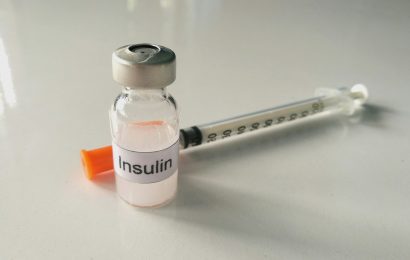Almost all generic nutrition advice is wrong. Why? Because different people are genetically prepared to eat different foods. At least, that’s what increasing numbers of scientists are saying, that before you can really know what’s best for you to eat, you need to know what your ancestors ate.
In their book, Genetic Nutrition, Artemis Simopoulos, M.D., and Victor Herbert, M.D., explain how different ethnic groups have adapted to different environments. For example, the Finnish people, living in the far North, got much of their nutrition from dairy products. The Finns who did well were ones who could absorb protein and fat from milk. Their genes became very good at absorbing cholesterol and holding on to it for times of famine.
This worked fine for them when they still had famines, but now Finns tend to run very high cholesterol levels and have high rates of heart disease. hey also have very high rates of Type 2 diabetes.
In contrast, the Japanese people adapted to an environment where many calories came from rice and fish. Their bodies don’t absorb cholesterol as well, which helps protect them from heart disease in today’s high-fat environment.
Grain Metabolism Differs, Too
If your ancestors came from Europe or most of Asia, they have had 10,000 years of growing wheat, corn, soy and other grains. You may be prepared to eat whole grains, because Europeans who couldn’t handle them died. (Note: This applies to whole grains. Nobody is prepared to handle refined carbs, in my opinion.)
But if your people come from Africa, the Pacific Islands, or the Americas, they have no history of eating grains, or of eating many carbohydrates at all. (The traditional Eskimo diet, for example, is 4% carbohydrate.) So those people can be at great risk from eating a high-grain diet. This may account for part of the soaring diabetes rates in African-Americans and Native Americans.
In the United States, people move around all the time and intermarry frequently. Genes get mixed. How do you know what your genes want you to eat?
The Blood Type Diet—For Real?
It is possible that your blood type can give you a clue about the best foods for you? Naturopath Peter D’Adamo caused a sensation when his book Eat Right 4 Your Type came out in 1996. This book has been both bitterly attacked and phenomenally successful. D’adamo has released a long series of follow-ups you can see on his Web site.
The blood type idea is attractive, because blood types developed in different parts of the world. Originally, everyone lived in Africa, and we were all type O. Then as people moved through Europe and Asia, the blood types A and B developed. D’adamo says those blood types were a response to the invention of agriculture and dairy farming. Blood types have mixed as people have moved around, but it may be that A, B, and O code for different ways of digesting and absorbing food.
D’adamo created long lists of what people with different blood types should and shouldn’t eat. He did this by placing drops of different foods into blood samples. He observed that some foods caused “agglutination” (sort of like clotting) in certain blood types but not in others. He concluded that people with blood types that agglutinated in response to certain foods should not eat those foods. You can see an example of a food-type list here.
If this sounds too simple, it probably is. D’adamo has since refined the blood type diet by looking at other proteins called “secretors,” which vary among people with the same blood type. The types of secretors you make seem to strongly affect the way you handle carbs. D’adamo’s company, North American Pharmacal, has developed tests for secretors and diet lists for the different types.
Does it Work?
D’adamo claims 70% of people see health improvement on the blood type diet. Many skeptics, however, find the idea absurd. They say blood type has nothing to do with food metabolism.
I think the truth is somewhere in between. I think blood type indicates where in the world some of your important genes come from. But can you base your diet on your blood type? I think it’s more important to find out how your ancestors ate. For example, if you are African-American, your folks were hunter/gatherers with some vegetable farming on the side. You might want to eat fewer grains and more protein. But because of all the intermarriage, it’s hard to know for sure what your genes like.
One thing is for sure—nobody in this world has ancestors who grew up on white bread, corn syrup, trans fats, and grain-fed beef. One piece of generic advice—to eat natural, whole foods—stands up for all of us.
Have any of our readers tried genetic nutrition? What have been your experiences? Does the idea make any sense to you? Let us know by commenting here.




